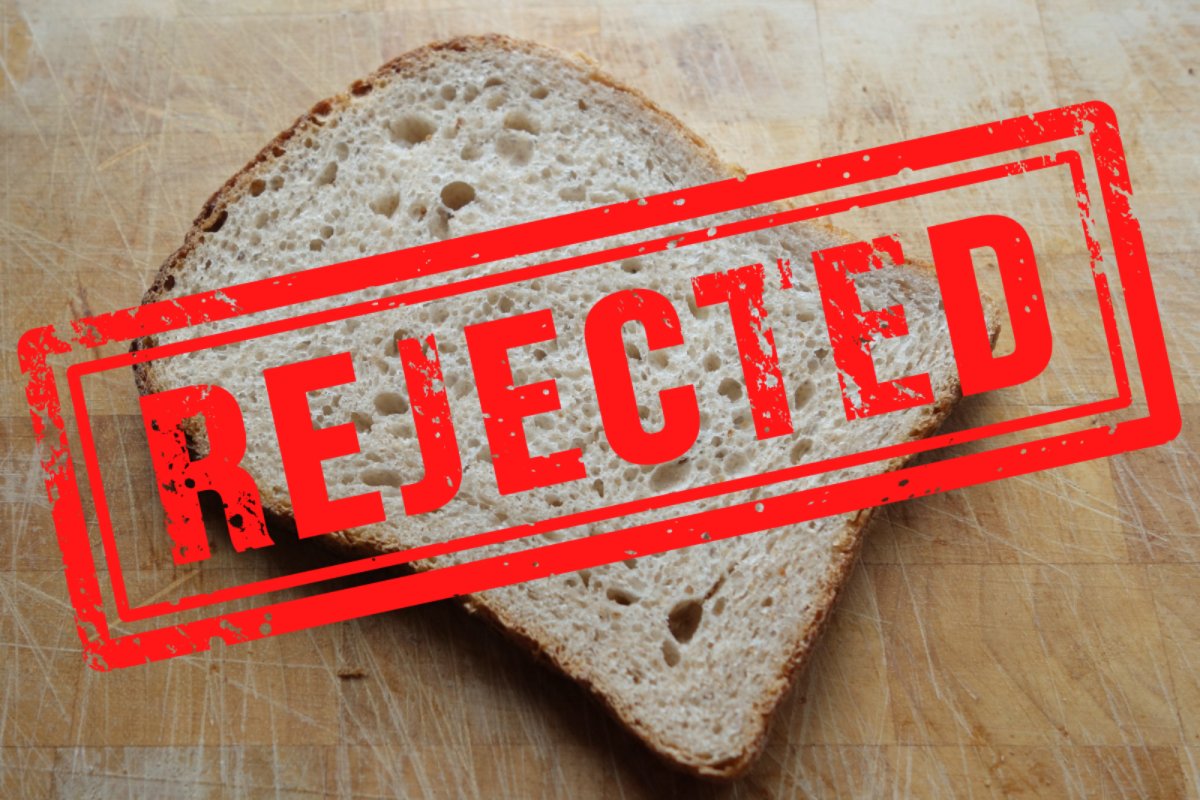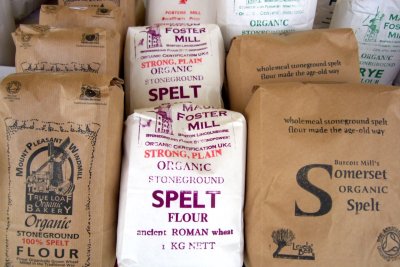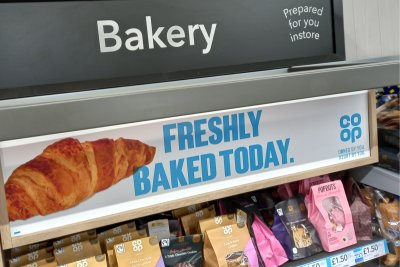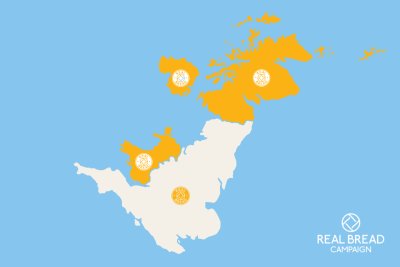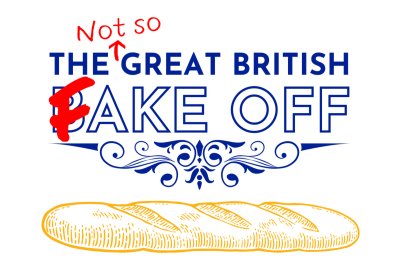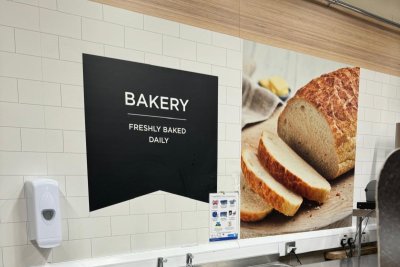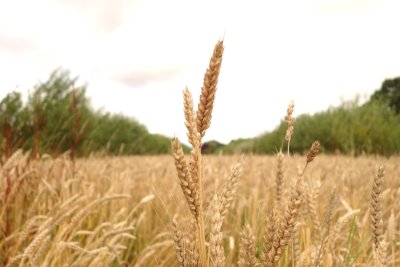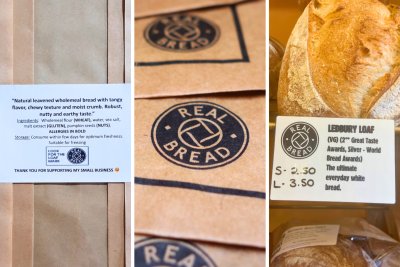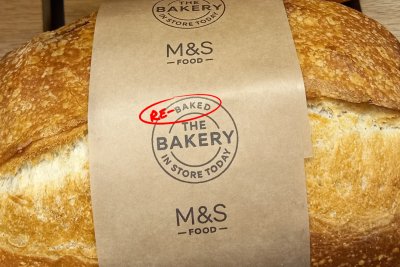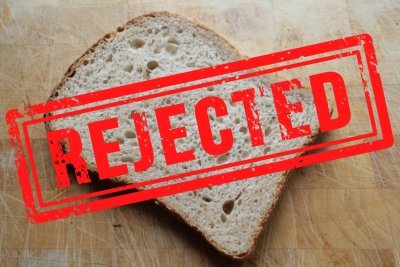 What now?. Credit: Chris Young / www.realbreadcampaign.org CC-BY-SA-4.0
What now?. Credit: Chris Young / www.realbreadcampaign.org CC-BY-SA-4.0
The government has cast further doubt on when (and even if) it will adopt any of the Real Bread Campaign’s Honest Crust Act proposals.
What now?
What do you think that the Real Bread Campaign should do (and enable our supporters and other friends to do) next? We invite everyone to help us decide in one or both of the following ways:
> Register to participate in an online virtual brainstorm on Friday 2 December at 9am OR Tuesday 6 December at 4pm.
> Submit your suggestions here
As a reminder (or introduction), our proposals are primarily designed to protect shoppers and small business owners in the UK. They include mandatory full ingredient labelling for all bread (and industrial loaf products), wraps, sandwiches etc.
The other key element is setting legal definitions of marketing terms such as fresh bread, baked in-store, freshly-baked, wholegrain, sourdough, artisan, and heritage/ancient wheat/grains, and introducing regulation of their use.
Half-baked
Responding to a question asked on our behalf by Drew Hendry, the Scottish National Party MP for Inverness, Nairn, Badenoch and Strathspey, Mark Spencer, Minister of State at Defra, wrote: “An update of existing guidance around commonly used marketing terms - such as reference to food being ‘fresh’ - across all foods is planned for the future.”
After all this time and all of our efforts, is that the best they’ll offer the UK's bakers and bread buyers? Non-binding guidance (rather than regulation) at some unspecified point in 'the future', with no indication at all of who will be involved in its creation.
As we asked in our response to the recently-closed public consultation on the Bread and Flour Regulations: Exactly when will these fundamentally important issues be considered and when will we all get to have our say on them?
Silenced
As we previously reported, Defra failed to allow adequate discussion of our proposals at the three meeting of its Bread and Flour Technical Working Group (BFTWG), and entirely excluded our proposals from the public consultation.
The decision to not allow bakers and everyone else in the UK to have our say on how bread is (and industrial loaf products are) labelled and advertised is scandalous. Particularly at a time when many people need to be even more careful than before that we’re getting what we pay for, the government’s dismissive attitude to this staple food (not to mention the people who buy it) is appalling.
It also seems to be further evidence that the government just does not care about small bakery business owners, whose call for support through the cost-of-everything crisis continues to go unanswered almost two months after we sent it.
Labelling lies?
Replying to a question from another MP, Fleur Anderson, the Labour representative for Putney, Mark Spencer wrote: “Existing food labelling rules, including ingredient listing, ensure that food is produced safely and labelled effectively to enable consumers to make informed choices on the food they buy and consume. For practical reasons, there are fewer mandatory labelling rules when food is sold loose.”
We simple cannot agree with this claim. Current legislation does not require food manufacturers and retailers to present people with all they need to make informed choices. For example:
- Neither the names or even the use of so-called processing aids have to be declared anywhere.
- Products made a long time ago, far, far away, then merely rebaked, can be marketed as ‘freshly-baked’ or ‘baked in store’ without the customer knowing where or when they were actually made - or even any indication that they were not made from scratch on site that day.
- ‘Fresh’ can be used as synonym for: days old, with shelf life prolonged by one or more artificial preservatives.
- There is no legal definition of ‘wholegrain’ or a minimum unrefined grain content requirement for a product marketed using the word.
- Terms including sourdough, artisan and heritage are similarly undefined and unregulated.
- As for loose foods, in whose interest is allowing retailers to hide (or, rather, to not display) a full ingredients list? Certainly not the shopper.
What ‘practical reasons’ does Spencer mean? A Real Bread baker would only need to list a handful of natural ingredients on a label next to each product, while larger producers/retailers would simply need to amend the text of their existing allergen declarations to list all ingredients and additives.
In a letter to Diane Abbott MP, Spencer dismissed our assertion that the BFTWG and public consultation are the appropriate places to discuss our proposals around labelling and marketing with specific reference to bread. These would then feed into discussions and decisions around general food labelling and marketing legislatio - whenever and however that might eventually take place...
No to sourdough
As well as kicking most of our proposals into the long grass, Spencer’s response to Hendry included one specific rejection: “The Government considered the merits of requests for the inclusion of a definition for sourdough in law but is keen to avoid creating further regulatory barriers in trade at this time. The Government is therefore supportive of non-regulatory measures and encourages further work on the joint industry code of practice which could help achieve a better mutual understanding in this area and help address the technical differences around the production of sourdough.”
In his letter to Abbott, Spencer went on to claim: "The technical stakeholder group considered the need for a legal definition of sourdough to be introduced into the Bread and Flour Regulations. There were divergent views on the matter, however the group broadly agreed that a regulatory approach was not needed."
Spencer also claimed that: "bakers, including those producing sourdough products, can effectively market their products on their own merits within the rules as they stand..."
Again, we cannot agree with any of this.
- A legal definition of sourdough will be an aid to trade! It will give shoppers assurance that they are getting what they’re paying for; support British baking industry’s reputation at home and abroad; and protect genuine sourdough bakers from unfair competition.
- The proposal was hardly 'considered' by the BFTWG. I presented it, there were a few dismissive comments from representatives of companies/organisations set to benefit from what we call the 'sourfaux free for all', and people with no interest in the topic, and the conversation was moved on within mere minutes.
- Bakers can market products on their own merits but against fundametally different products, manufactured more quickly and cheaply, that are promoted by companies with enormous marketing budgets that easily drown out all cries of 'foul!'.
Sourfaux stalemate
Industrial loaf fabricators, additive merchants and even some 'craft' bakers came late to sourdough in the UK. Having long dismissed sourdough bread and the bakers who make it (sometimes in pretty disparaging terms, in my experience) they now want a slice of the action.
It is possible to make genuine sourdough bread at scale, as a number of companies in the UK and elsewhere currently prove. Not all manufacturers are prepared to follow the genuine sourdough process (as nurtured by the custodians of the craft since it started bubbling up in the UK at least four decades ago), though. A number of newcomers want to write their own rulebook to justify hijacking the word to market fundamentally different products made using different processes, as well as additives that no genuine sourdough maker would use.
On 31 October 2022, Real Bread Campaign co-founder Andrew Whitley of Scotland the Bread, and I attended a virtual meeting with representatives of organisations behind the proposed code of practice referred to by Spencer. It soon became clear that everyone’s positions remained fundamentally the same as in November 2019, when we said we believed a draft version was ‘a cheat’s charter.’
Over to you
Since 2009, the Real Bread Campaign has tried a range of tactics to raise general awareness of the issues, bring about necessary changes in the law, and encourage companies to adopt our proposals voluntarily in the meantime.
Our Honest Crust Act work has included:
- Campaigns of mass emailing ministers and other MPs.
- Meeting MPs and civil servants.
- Participating in Defra’s Bread and Flour Technical Working Group.
- Writing briefings, including our Honest Crust Act proposals and the case for a legal definition of sourdough
- Responding to governmental public consultations.
- Encouraging MPs to submit written questions to the government.
- Public-facing initiatives, targeting industry. These have included the original Stick one on ‘em and current Shop the Sourfaux Suspects.
- Submitting complaints to the Advertising Standards Authority and local authority trading standards departments about what we believe to be misleading advertising/marketing.
- Raising our concerns with companies.
- Carrying out and publishing results of research about these issues.
- Media work to keep all of this in the public eye.
Going back to the top of this article: What should we do next? What new approaches (or new takes on things we've tried before) should we put into action in 2023?
I look forward to your suggestions.
PS
Our charity can only continue this fight with YOUR support. Find out the ways in which you can help.
Real Bread Campaign: The Real Bread Campaign finds and shares ways to make bread better for us, better for our communities and better for the planet. Whether your interest is local food, community-focussed small enterprises, honest labelling, therapeutic baking, or simply tasty toast, everyone is invited to become a Campaign supporter.
Sustain
The Green House
244-254 Cambridge Heath Road
London E2 9DA
020 3559 6777
sustain@sustainweb.org
Sustain advocates food and agriculture policies and practices that enhance the health and welfare of people and animals, improve the working and living environment, promote equity and enrich society and culture.
© Sustain 2024
Registered charity (no. 1018643)
Data privacy & cookies
